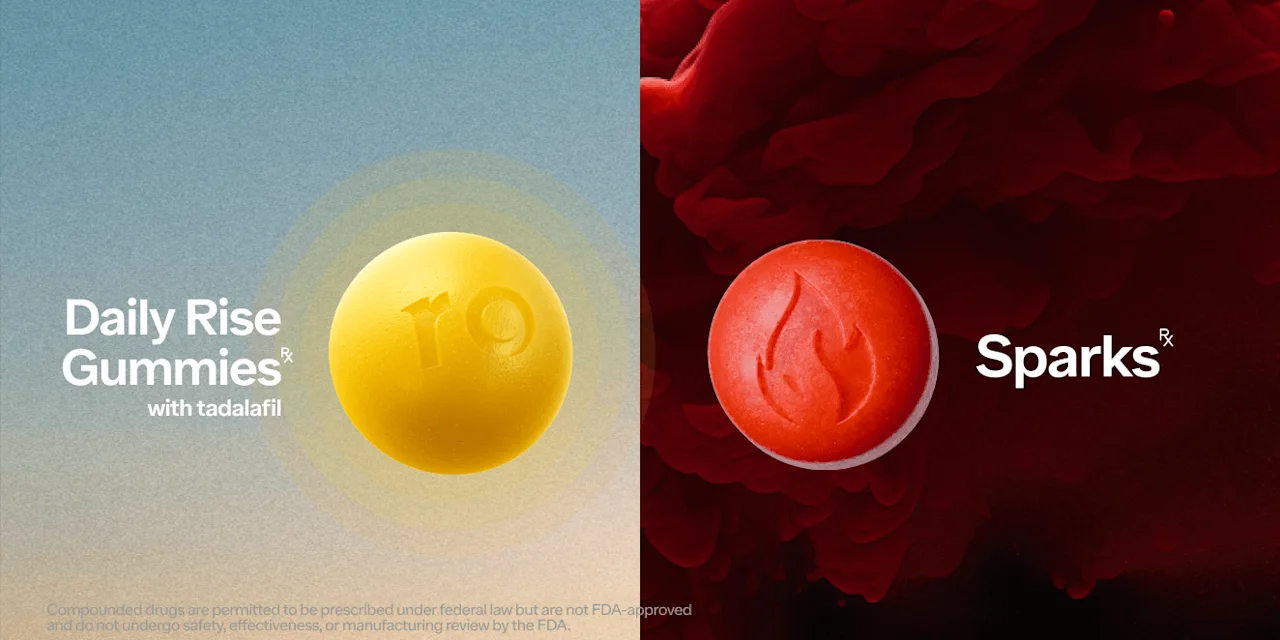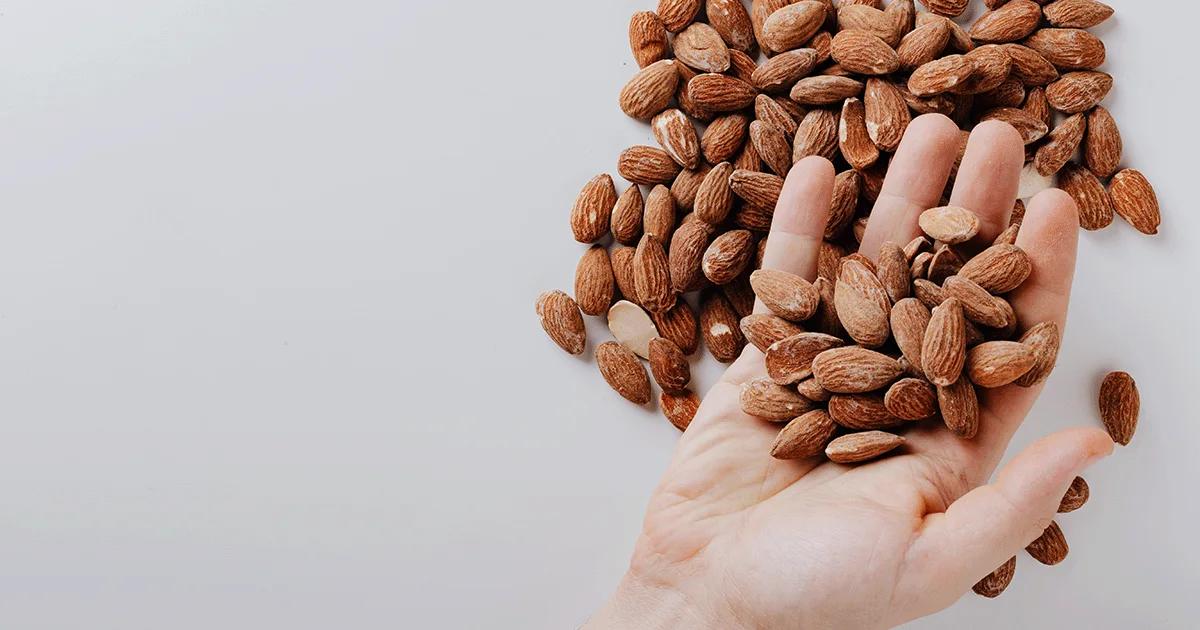Here's what we'll cover
While you may be most familiar with its immune-boosting power, zinc can positively affect many other parts of your body as well, including “down there.” So, what are the sexual benefits of zinc, exactly? And can this micronutrient really make that much of an impact in the bedroom?
Here’s the lowdown on the benefits of zinc sexually and for health overall—plus, how much of zinc you should be getting and how to know if you’re deficient (which, as you’ll quickly learn, can have a negative influence on your sexual wellbeing).
3 sexual benefits of zinc
For a trace mineral (i.e. a mineral the body needs in very small amounts), zinc can play quite the part in supporting your overall mental and physical wellbeing—and this can certainly have repercussions on sexual function. While there’s a good amount of research on the mineral and its potential perks, it’s worth noting that more research on humans is needed for some of the sexual benefits of zinc. Still, however, here are a few of the ways the mineral might enhance your sexual experiences.
Promotes healthy testosterone levels
Zinc can play, to quote researchers, “a major” part in the production and regulation of testosterone, a sex hormone responsible for sex drive, erectile function, muscle and bone strength, and more. Research has demonstrated a fairly clear link between zinc and testosterone levels in men. Findings suggest that zinc deficiency can negatively impact testosterone levels while zinc supplementation can boost them.
Supports sperm health and fertility
Studies suggest that low zinc intake can raise the risk of low-quality sperm and male infertility. Zinc supplementation, on the other hand, has been found to significantly increase semen volume, sperm motility (i.e. how well they move), and healthy sperm morphology (i.e. their structure and shape) in infertile men. This makes quite a bit of sense given the fact that the mineral is considered crucial for the production of sperm (aka spermatogenesis) in the testes, sperm cell maturation in the epididymis (a tube attached to each testicle), and overall sperm motility. However, the same analysis found that zinc supplementation didn’t affect other sperm parameters, such as sperm count. Be sure to check in with a healthcare provider when considering options to support fertility.
Improves sexual function and erectile dysfunction
There are a range of reasons for erectile dysfunction (ED), but if you’re struggling to get and maintain an erection, your zinc levels may be, at least partially, to blame. As mentioned, zinc levels are linked to testosterone; the hormone is important for libido and arousal—both of which are needed for optimal sexual function—and it’s thought that testosterone helps encourage healthy blood flow that can contribute to strong erections.
In one study, researchers analyzed the diets of 3,745 people and found that individuals without ED consumed higher amounts of trace minerals, such as zinc, than those with the condition. While this suggests that diets rich in zinc (along with other nutrients) may help with sexual function, research on humans is limited. There may be a mental health element at play, as low levels of zinc have been associated with anxiety and depression—both of which can contribute to ED. (More on this later.)
That being said, there are a few animal studies that have found zinc to impact sexual competency. In a small study, adult male rats were given a daily dose of zinc sulfate for two weeks; those who received a moderate dose experienced an increase in time prior to ejaculation and penile thrusting (which, according to the researchers, is an indicator of erection) compared to the control group. Meanwhile, the rats who received lower doses didn’t show any differences and those who got higher doses had a reduction in sexual activities, thus suggesting that zinc supplementation for ED may be dose-dependent. Keep in mind that the results of animal studies don’t always reflect what happens in humans.
Other benefits of zinc for men
Strengthens immune function
Zinc is essential for the immune system to function properly. That’s because it plays a key role in the normal development and function of immune cells, which help fight off bacteria and viruses. As a result, being chronically deficient in zinc can make you more susceptible to illness. On the flip side, supplementing with zinc can give your immune system a boost; research shows that taking zinc may help shorten the duration of cold symptoms or help prevent them altogether.
Enhances athletic performance and recovery
Zinc is necessary for cell growth and protein synthesis, both of which come into play when repairing muscle damage (and, in turn, growing more muscle) after intense workouts. The mineral also helps produce and regulate testosterone. While the hormone might be best known for its responsibilities in the sexual and reproductive health departments, it is also involved in skeletal muscle growth. So, the thinking is as follows: By promoting healthy testosterone levels, zinc may be able to indirectly contribute to muscle growth, which, in turn, can boost strength and endurance. While more research is needed to back this theory up—and on zinc’s influence on exercise and physical performance overall—some findings suggest that zinc supplementation could be particularly beneficial to athlete’s sports performance.
Reduced anxiety and depression
Low levels of zinc have been linked to both anxiety and depression. This may be because zinc appears to interact with brain-derived neurotrophic factor (i.e. a protein that supports the growth of new brain cells, helps neurons communicate, and protects neurons from damage) and the neurotransmitter GABA in the brain—both of which can have an effect on mood. Zinc supplementation may help: A 2021 study on participants ages 60 and above found that taking a 30 mg zinc supplement for 70 days significantly reduced symptoms of anxiety and depression in older adults. Around half of the participants began the study with low zinc levels, which is not uncommon in older adults. So, more research is needed to confirm the effect of zinc on mental health.
Zinc deficiency
The recommended dietary allowance (RDA) of zinc is 11 mg per day for men ages 14 and up, which means that’s how much daily zinc should be sufficient for nearly all healthy individuals in that group. Severe zinc deficiency is rare in developed countries, but mild-to-moderate deficiency may be common—and research shows that about 15% of US adults aren’t getting enough of the mineral.
Symptoms of zinc deficiency include:
Weakened immune system
Hypogonadism (when the body's sex glands don’t produce enough hormones, including testosterone)
Loss of appetite
Loss of taste and smell
Skin sores or rash
Difficulty seeing in the dark
Slow growth
Zinc deficiency can happen because someone isn’t consuming enough of the nutrient or because it’s not being properly absorbed by the body. There are a few risk factors that put an adult at increased likelihood of being deficient in zinc, including:
Malabsorption or gastrointestinal disorders (e.g.inflammatory bowel disease, celiac disease)
Vegetarian or vegan diet
Pregnancy or lactation
Alcohol use disorder
Malnourishment (potentially as a result of protein deficiency or an eating disorder)
Older adults (age 65+) are also at a greater risk of zinc deficiency.
Since zinc is involved in so many processes and mainly stored in muscle and bone, it can be difficult to measure zinc levels and diagnose a deficiency, if present. Generally, though, a healthcare provider will test your serum or plasma levels of zinc via blood draw.
Zinc supplementation
The best way to get enough zinc is to eat a balanced diet that contains a variety of foods. Some foods offering the highest dietary sources of zinc include:
Seafood (oysters, crab, shrimp, sardines)
Meat and poultry (beef, pork, turkey breast, dark chicken meat)
Nuts and seeds (pumpkin seeds, lentils, soybeans, peanuts, pine nuts)
Fortified breakfast cereals
Dairy (cheddar cheese, Greek yogurt, milk).
You can also find zinc in multivitamins, immune support supplements (including drinks or lozenges), and zinc-only pills. Being that the RDA of zinc can ensure that “nearly all (97–98%) healthy people” get enough zinc, experts don’t generally recommend taking more of the mineral. Plus, more isn’t always better; high intakes of zinc (that’s more than 40 mg per day for most adults, according to the National Institutes of Health) can cause nausea, dizziness, headaches, gastrointestinal distress, vomiting, and loss of appetite. If used for weeks, daily doses of 50 mg or more can also interfere with copper absorption, reduce immune function, and lower HDL (“good”) cholesterol levels, among other negative side effects.
Keep in mind that the Food and Drug Administration (FDA) doesn’t regulate dietary supplements. This means they don’t have to go through the same testing for safety and efficacy. For this reason, dietary supplements can run the risk of being contaminated with harmful ingredients, containing ingredients not shown on the label, and lacking the ingredient they advertise altogether.
Similarly, it’s important to note that dietary supplements, including zinc, have the potential to interact with certain medications, including antibiotics and diuretics. This is why it’s always a good idea to consult a healthcare provider before using any supplements.
Bottom line
Zinc is a major player in the human body, especially in the realm of reproductive and sexual health. As for zinc’s sexual benefits? The mineral can promote healthy testosterone levels, improve erectile function, support sperm health, and boost libido. While the sexual benefits of zinc truly can be enticing—especially if you’re dealing with, say, ED—the mineral is not a magical nutrient.
If you think zinc deficiency might be to blame for any down there difficulties, or you’re interested in taking a zinc supplement in general, be sure to consult your healthcare provider. They are best equipped to help you determine if zinc supplementation is needed in the first place and if so, how to best go about getting enough of the mineral.
DISCLAIMER
If you have any medical questions or concerns, please talk to your healthcare provider. The articles on Health Guide are underpinned by peer-reviewed research and information drawn from medical societies and governmental agencies. However, they are not a substitute for professional medical advice, diagnosis, or treatment.
Afzali, A., Vakili, Z., Goli, S. et al. (2021). A Randomized Clinical Trial of the Effect of Zinc Supplement on Depression and Anxiety in the Elderly. The Open Public Health Journal. doi: 10.2174/1874944502114010537. Retrieved from https://openpublichealthjournal.com/VOLUME/14/PAGE/537/FULLTEXT/
Bathina, S. & Das, U. N. (2015). Brain-derived neurotrophic factor and its clinical implications. Archives of Medical Science : AMS, 11(6), 1164–1178. doi: 10.5114/aoms.2015.56342. Retrieved from https://www.ncbi.nlm.nih.gov/pmc/articles/PMC4697050/
Colagar, A. H., Marzony, E. T., & Chaichi, M. J. (2009). Zinc levels in seminal plasma are associated with sperm quality in fertile and infertile men. Nutrition Research (New York, N.Y.), 29(2), 82–88. doi: 10.1016/j.nutres.2008.11.007. Retrieved from https://pubmed.ncbi.nlm.nih.gov/19285597/
Fallah, A., Mohammad-Hasani, A., & Colagar, A. H. (2018). Zinc is an Essential Element for Male Fertility: A Review of Zn Roles in Men's Health, Germination, Sperm Quality, and Fertilization. Journal of Reproduction & Infertility, 19(2), 69–81. Retrieved from https://www.ncbi.nlm.nih.gov/pmc/articles/PMC6010824/
Greenblatt, J. M. & Delane, D.D. (2018) Zinc Supplementation in Anorexia Nervosa. Journal of Orthomolecular Medicine, 33(1). Retrieved from https://isom.ca/article/zinc-supplementation-anorexia-nervosa/
Hernández-Camacho, J. D., Vicente-García, C., Parsons, D. S., & Navas-Enamorado, I. (2020). Zinc at the crossroads of exercise and proteostasis. Redox Biology, 35, 101529. doi: 10.1016/j.redox.2020.101529. Retrieved from https://www.ncbi.nlm.nih.gov/pmc/articles/PMC7284914/
Hunter, J., Arentz, S., Goldenberg, J., et al. (2021). Zinc for the prevention or treatment of acute viral respiratory tract infections in adults: a rapid systematic review and meta-analysis of randomised controlled trials. BMJ Open, 11, e047474. doi: 10.1136/bmjopen-2020-047474. Retrieved from https://bmjopen.bmj.com/content/11/11/e047474.citation-tools
Jagadeesan, S. & Kaliyadan, F. (2023) Acrodermatitis Enteropathica. StatPearls. Retrieved from https://www.ncbi.nlm.nih.gov/books/NBK441835/
Liu, R., Li, S., Xu, Z., et al. (2022). Dietary metal intake and the prevalence of erectile dysfunction in US men: Results from National Health and Nutrition Examination Survey 2001–2004. Frontiers in Nutrition, 9, 974443. doi: 10.3389/fnut.2022.974443. Retrieved from https://www.frontiersin.org/journals/nutrition/articles/10.3389/fnut.2022.974443/full
Lukaski, H. C. (2005). Low dietary zinc decreases erythrocyte carbonic anhydrase activities and impairs cardiorespiratory function in men during exercise. The American Journal of Clinical Nutrition, 81(5), 1045-1051. https://doi.org/10.1093/ajcn/81.5.1045. Retrieved from https://www.sciencedirect.com/science/article/pii/S0002916523281800
Mikhail, N. (2006). Does Testosterone Have a Role in Erectile Function?. The American Journal of Medicine, 119(5), 373–382. doi: 10.1016/j.amjmed.2005.07.042. Retrieved from https://www.amjmed.com/article/S0002-9343(05)00642-X/fulltext
Nassar, G. N. & Leslie, S. W. (2023) Physiology, Testosterone. StatPearls. Retrieved on Jul. 22, 2024 from https://www.ncbi.nlm.nih.gov/books/NBK526128/
National Institutes of Health Office of Dietary Supplements. (2022). Zinc Fact Sheet for Health Professionals. Retrieved from https://ods.od.nih.gov/factsheets/Zinc-HealthProfessional/
Petrilli, M. A., Kranz, T. M., Kleinhaus, K., et al. (2017). The Emerging Role for Zinc in Depression and Psychosis. Frontiers in Pharmacology, 8, 414. doi: 10.3389/fphar.2017.00414. Retrieved from https://www.ncbi.nlm.nih.gov/pmc/articles/PMC5492454/
Rabinovich, D. & Smadi, Y. (2023). Zinc. StatPearls. Retrieved on Jul. 22, 2024 from https://www.ncbi.nlm.nih.gov/books/NBK547698/
Rastrelli, G., Corona, G., & Maggi, M. (2018). Testosterone and sexual function in men. Maturitas, 112. doi: 10.1016/j.maturitas.2018.04.004. Retrieved from https://www.maturitas.org/article/S0378-5122(18)30157-9/abstract#articleInformation
Reider, C. A., Chung, R. Y., Devarshi, P. P., et al. (2020). Inadequacy of Immune Health Nutrients: Intakes in US Adults, the 2005-2016 NHANES. Nutrients, 12(6), 1735. doi: 10.3390/nu12061735. Retrieved from https://www.ncbi.nlm.nih.gov/pmc/articles/PMC7352522/
Rizk, P. J., Kohn, T. P., Pastuszak, A. W., et al. (2017). Testosterone therapy improves erectile function and libido in hypogonadal men. Current Opinion in Urology, 27(6), 511–515. doi: 10.1097/MOU.0000000000000442. Retrieved from https://www.ncbi.nlm.nih.gov/pmc/articles/PMC5649360/
Te, L., Liu, J., Ma, J., & Wang, S. (2023). Correlation between serum zinc and testosterone: A systematic review. Journal of Trace Elements in Medicine and Biology, 76, 127124. doi: 10.1016/j.jtemb.2022.127124. Retrieved from https://www.sciencedirect.com/science/article/abs/pii/S0946672X22002048
U.S. Food and Drug Administration (FDA). (2024). Questions and Answers on Dietary Supplements. Retrieved from https://www.fda.gov/food/information-consumers-using-dietary-supplements/questions-and-answers-dietary-supplements
Vickram, S., Rohini, K., Srinivasan, S., et al. (2021). Role of Zinc (Zn) in Human Reproduction: A Journey from Initial Spermatogenesis to Childbirth. International Journal of Molecular Sciences, 22(4), 2188. doi: 10.3390/ijms22042188. Retrieved from https://www.ncbi.nlm.nih.gov/pmc/articles/PMC7926410/
Xiao, Y., Xie, T., Peng, J., et al. (2023). Factors associated with anxiety and depression in patients with erectile dysfunction: A cross-sectional study. BMC Psychology, 11, 36. doi: 10.1186/s40359-023-01074-w. Retrieved from https://www.ncbi.nlm.nih.gov/pmc/articles/PMC9899110/
Zhao, J., Dong, X., Hu, X., et al. (2016). Zinc levels in seminal plasma and their correlation with male infertility: A systematic review and meta-analysis. Scientific Reports, 6(1), 1-10. doi: 10.1038/srep22386. Retrieved from https://www.nature.com/articles/srep22386













